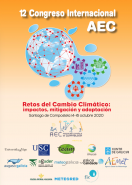The relevance of PUR-related research has been reinforced by the fact that the concept has attracted considerable interest from policy makers and regional planners. A range of normative plans and policies have been proposed advocating ‘polycentric regional development’. In policy terms, PURs have been championed by advocates as an innovative way to manage urban-rural relations and framed by the normative goal of sustainable spatially balanced territorial development. We see this in Europe, where following the European Spatial Development Perspective (ESDP), European Spatial Planning Observatory Network (ESPON) and the Interreg IIIB programmes have advanced PURs as a key mechanism to achieve territorial competitiveness and cohesion. We see it in post-reform China which has seen its fast-paced urbanisation, initially characterised by decentralisation and rescaling of state power leading to intercity competition, captured by collaborative projects such as plans for PURs in recent years. Meanwhile, more generally, a spatial planning agenda focusing on ‘megaregions’ – large-scale regions centred on multiple, more-or-less closely located urban centres – has been devised, emphasising the supposed benefits for competitiveness and resilience. This said, the development of (polycentric) urban regions is not a spatially and socially homogenous process. It is important to identify people and places that are ‘winners’ and ‘losers’ in city-regional processes. Equally significant is identifying the successes and failings of the polycentric development model.
As workshop organisers we are keen to attract papers which offer new insights into the effectiveness of the polycentric regional development model in general, and a particular focus on the planning and governance of PURs. Abstracts which are highly innovative, collaborative, international or multi-disciplinary are especially welcome, as are contributions which offer retrospective assessments and/or prospective visions for PURs. Broad themes and key agendas the organisers are keen to facilitate discussion around include, but are not limited to:
- Local, regional and national development policies for PURs
- Coordinating planning and governance of PURs across fragmented arrangements
- Similarities and differences in approaches to planning and governing small-scale, medium-sized and large-scale PURs
- The challenge of planning and governing cross-border PURs
- Assessments of the impacts that polycentric regional development has on peoples and places.
- (Overcoming) constraints to polycentric regional development
- Planning and governance in, for and beyond PURs
- Achievements, failings, future for the polycentric development model
- Illustrative cases where the PURs development model has been implemented (un)successfully
Keynote speakers
Nick Phelps – University of Melbourne
Kathy Pain – University of Reading
Christophe Sohn – Luxembourg Institute of Socio-Economic Research
Workshop format
In addition to the keynote speakers, all participants will present their work in plenary sessions and the workshop will be organized in such a way that there is ample time for discussion, feedback and creative thinking on future research steps.
Publication plans
Our intention is to take forward the strongest papers and produce a special issue on planning and governing PURs.
Contact
For enquiries, please contact John Harrison j.harrison4@lboro.ac.uk and Michael Hoyler m.hoyler@lboro.ac.uk.
Deadlines
- 26 April 2019 – abstract submission deadline
- 3 May 2019 – notification of acceptance
Please send abstracts (or complete papers) to j.harrison4@lboro.ac.uk and m.hoyler@lboro.ac.uk. Abstracts submitted will be reviewed by the organisers of the Regional Studies Network on Polycentric Urban Regions, as there is a maximum number of participants we can accommodate.
Travel bursary available for PhD student
We have a small budget to financially support travel and accommodation for PhD students that are willing to join the workshop and that do not have (sufficient) resources themselves in their project budget. If this is the case, please indicate in your submission email that you would like to be considered for this travel bursary.
Registration fee
Thanks to generous support by the Regional Studies Association workshop participation is free of charge and meals are included (including a conference dinner).
Travel and accommodation
We will provide an overview of travel and accommodation options to participants after confirmation of acceptance.
RSA Research Network on Polycentric Urban Regions
The RSA Research Network on Polycentric Urban Regions was launched at the Regional Studies Association Annual conference in Lugano, Switzerland (June 2018). The aim of the network is (1) to set a renewed agenda for PUR research within urban and regional studies, (2) to inform cutting-edge theoretical, methodological, and policy insights, (3) to cultivate synergies between researchers with different backgrounds and at different stages of their career, as well as (4) to contribute to policy debates through impactful research and engagement. The first workshop on conceptualising, identifying and analysing PURs was held in Delft (January 2019) and a third workshop is planned for Guangzhou (December 2019). The initiators of the network are Ben Derudder, John Harrison, Michael Hoyler, Xingjian Liu and Evert Meijers. The network is open to all scholars with an interest in PURs.

